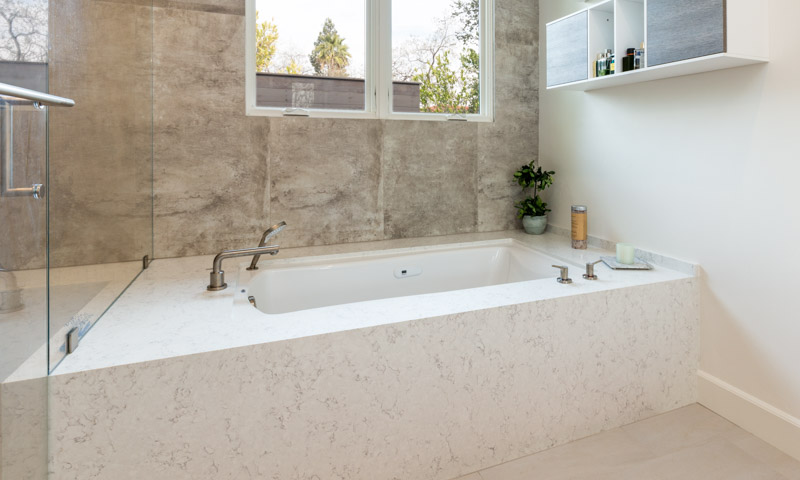Granite has been the official status symbol in the world of countertops since the 1990s, but quartz is quickly gaining ground as the high-end countertop of choice.
If you’re comfortable with the yearly maintenance required to keep a granite countertop at its best, not to mention the high cost of natural stone, by all means, choose granite. But if you would like an attractive, durable, and affordable countertop that never needs to be sealed, then you want quartz.
Quartz countertops are a mixture of at least 93% crushed naturally-occurring quartz stone and resin and can be manufactured in a variety of patterns and colors. The material is nonporous and stain-resistant making quartz countertops virtually maintenance-free—it can be cleaned with simple soap and water.

The best quartz countertops are manufactured to be hygienic and safer for food preparation and consumption. The National Sanitation Foundation has certified both Caesarstone and Silestone quartz countertops to be safe, and some are also certified Kosher.
Quartz is also stronger than both granite and marble and therefore more resistant to cracking and chipping. Choosing rounded edges and corners further reduces the chance of suffering an irreparable chip. Both materials are extremely heavy—quartz is actually slightly heavier because it’s denser—and professional installation is mandatory.
Unlike granite, it is possible to minimize the appearance of seams in a quartz countertop (solid colors hide seams better than patterns). The natural veins and coloring of the stone make it impossible to hide the seams in a granite countertop.
When it comes to cost, quartz wins on nearly all fronts. Granite can be found for as low as $60 per square foot, but the cost climbs quickly from there. Quartz is available in a wide variety of colors and styles for between $65 and $95 per square foot. (Prices include material and installation.)
And—for homeowners who place a high value on sustainability, quartz recycles waste materials, rather than quarrying new stone each time.



